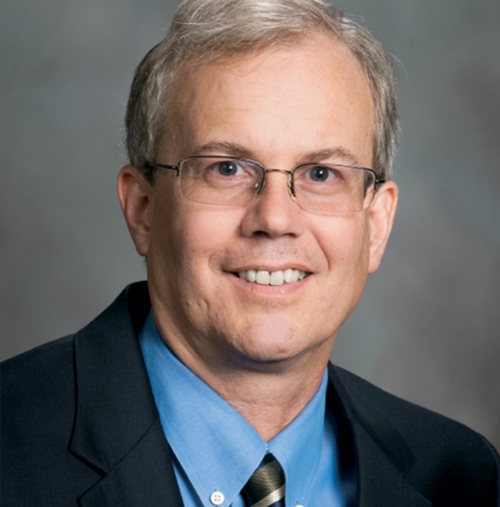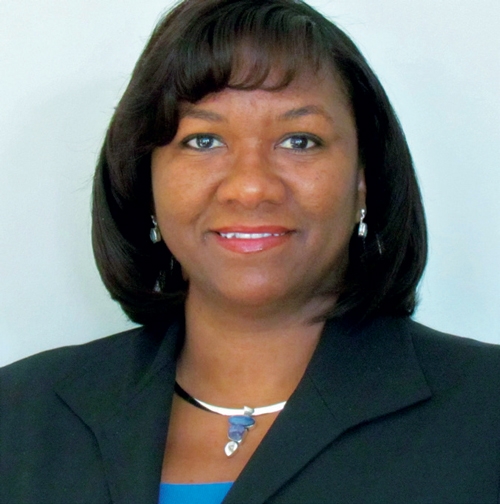Letters from the Department Head and the Chair of the Advisory Board
May 20, 2019

I am pleased to report that the Bradley Department of Electrical and Computer Engineering (ECE) at Virginia Tech continues to be a destination for students at all levels and new faculty hires. In 2018 we greeted about 426 new sophomores into the Electrical Engineering (EE) and Computer Engineering (CPE) degree programs, with about 60 percent of them intending to pursue the CPE degree.
You may recall that we featured the “ECE Majors” for B.S. students graduating in 2020 and afterward in last year’s annual report. At the time, we were targeting these new plans of study, consisting of 7-course bundles, for recruiting the freshmen from General Engineering. As part of the vast undergraduate curriculum revision that we had embarked on in our NSF Revolutionizing Engineering Departments (RED) grant, the “Majors” were considered an essential element to attract a broader cohort of engineering students.
Interestingly enough, however, it turns out that the “Majors” introduce a flexibility into our curriculum that is also very attractive to students applying to the College of Engineering from high school. This added benefit is a welcome change from the recent, nationwide impression that ECE is just electricity, electronics, and electromagnetics.
Now here we are in Spring 2019 and the most popular majors within ECE are fast becoming Controls, Robotics & Autonomy, Machine Learning, Networking and Cybersecurity, and Energy and Power Electronics Systems. Some of these technical areas look very familiar to us, while others may be considered heresy in more traditional departments. And therein lies the point of the NSF RED grant strategy: ECE as a discipline is a huge umbrella encompassing a wide variety of technical fields. As a consequence, we now need students from many different backgrounds and experiences to reflect the place that ECE holds in the overall picture of engineering today.
With the announcement of Amazon’s HQ2 in Northern Virginia and the increased interest in computer science and engineering, our new selection of academic pathways at the B.S. level has been a boon to the department in terms of visibility, differentiation and recruitment. Our freshman-level course entitled “Introduction to ECE Concepts,” which is being offered for the first time this Spring semester, reflects this diversity in what we teach and the exciting careers paths that are possible in ECE. My thanks go to Tom Martin who has been leading this NSF RED effort and the whole faculty team that is making this program a reality.
Last year, we graduated 299 B.S.-degree students in EE and CPE, which is the most since 2002. The 58 Ph.D. students that were graduated in the 2018 timeframe represents a new all-time high. This is a testament to the strength of our graduate program ranked 10th in the country in terms of research expenditures by the 2017 NSF Higher Education Research & Development (HERD) survey.
Even before Amazon announced its plans for Northern Virginia and the need for more master’s-level employees, our department was planning a push to expand its Master of Engineering (MEng) program in both Northern Virginia and Blacksburg (see the full story inside this report). I am happy to tell you that we have hired four new faculty members who will start in August and will specifically focus on teaching and mentoring MEng students.
I am delighted to tell you that our graduate programs have been ranked in the top 20 in the U.S. for the third straight year. The EE program is now ranked 19th in the country, and computer engineering is placed at 18th. This sustained presence among the top graduate institutions has been fueled in large part by the aggressive faculty hiring that we have done in the past six years during which we have hired 35 full-time and 3 part-time faculty.
Just recently, five new faculty members started in the time period from November 2017 to January 2019, and they are profiled in the subsequent pages of this report. This latest cohort has had an immediate impact on our research by expanding our portfolio in the areas of remote sensing, power electronics, power systems, and cryptographic engineering. Furthermore, as I write this report, we have hired another seven faculty members who will officially start in August of this year.
As a major milestone for the department, August 2019 will most likely mark the month that we reach 100 teaching, tenured and tenure-track faculty in the department! To all the members of the faculty search committees over the past several years, I give you my deepest thanks for your dedicated effort and positive attitude in recruiting so many great new people to the department.
Thank you and go Hokies!
Luke Lester
Roanoke Electric Steel Professor
ECE Department Head

In Spring 2018, I was honored to be elected to succeed Kenneth Schulz as the ECE Advisory Board Chair. During the years since my graduation, I have had a desire to give back to my alma mater. Both the Virginia Tech College of Engineering and the Corps of Cadets provided me the foundation for a wonderful 25-year Air Force career and successful second career in industry. When I was fortunate enough to be given the opportunity to pay it forward, I did not hesitate. I highly encourage all ECE alumni to help the department be the best it can be by increasing awareness of the highly ranked Virginia Tech ECE Department in our schools, by providing financial donations, or volunteering to assist with student projects.
The Virginia Tech ECE Advisory Board had another busy year serving the department. In 2019, we welcomed seven new members: Paige Kassalen from Covestro, Christine Whiteside from IBM, Adedoyin “Doyin” Adewodu, founder of Infrastructure Solutions International (INFRASI), Michael Bear from BAE Systems, Charles Dublin from Akamai Technologies, Air Force Lt. Col. Michael Pochet, and Brian Huber from Micron Technology. We thank outgoing board members Bernard Chau, Nathan Cummings, Peter Diakun, Steve Poland, and Dave Rea for their service to the department.
A key focus area of the Advisory Board in 2018 was the launch of the 12 new ECE Majors with the Class of 2020. We engaged more faculty to provide our industry perspective on the reformulation of the undergraduate curriculum which is fundamentally expanding the pathways in the professional formation of our ECE undergraduates.
The board provided input to Department Head Luke Lester to help prepare for continued growth of the ECE Department, including hiring faculty for new technology areas. We saw the size of the ECE Department and engineering class continue to grow from the 5th to the 4th largest ECE Department in the nation. To accommodate this growth and the inclusion of new technology areas, Dr. Lester hired new faculty members: Chen-Ching Liu, American Electric Power Professor and director of the Power and Energy Center, and Assistant Professors Elena Lind, William Diehl, Dong Dong, and Yuhao Zhang. The board also provided industry perspective on the exciting expansion of the Masters of Engineering program, both in the greater Washington, D.C. region and Blacksburg.
Going forward, the board looks forward to continuing to help Luke prepare for continued growth of the ECE Department and to contributing to making the department one of the highest ranked departments in the nation. I would like to express my sincerest thanks to the board, our Vice-Chair Duane Blackburn, Member at Large Nam Nguyen, and Luke, for their support and the opportunity to serve the ECE department.
Lynne Hamilton-Jones (BSEE ’84, MSEE ’89)
Chair, ECE Advisory Board
Director, Advisory Services
LMI


